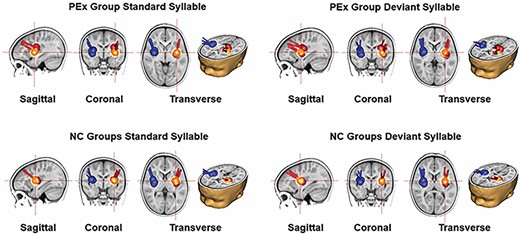2024-03-12 カロリンスカ研究所(KI)

Photo: Getty Images.
<関連情報>
- https://news.ki.se/adhd-medication-linked-to-reduced-mortality
- https://jamanetwork.com/journals/jama/article-abstract/2816084
ADHD患者における薬物療法と死亡率 ADHD Pharmacotherapy and Mortality in Individuals With ADHD
Lin Li, PhD; Nanbo Zhu, MSc; Le Zhang, PhD; et al
Journal of the American Medical Association Published:March 12, 2024
DOI:10.1001/jama.2024.0851
Key Points
Question Is initiation of attention-deficit/hyperactivity disorder (ADHD) medication associated with a reduced mortality risk in individuals with ADHD?
Findings In this observational, target trial emulation analysis that included 148 578 individuals diagnosed with ADHD in Sweden, initial dispensation of ADHD medication was significantly associated with lower all-cause (hazard ratio [HR], 0.79) and unnatural-cause (HR, 0.75) mortality, whereas the association with natural-cause mortality was not significant (HR, 0.86).
Meaning Among individuals diagnosed with ADHD, medication initiation was significantly associated with lower mortality, in particular for unnatural causes.
Abstract
Importance Attention-deficit/hyperactivity disorder (ADHD) is associated with increased risks of adverse health outcomes including premature death, but it is unclear whether ADHD pharmacotherapy influences the mortality risk.
Objective To investigate whether initiation of ADHD pharmacotherapy was associated with reduced mortality risk in individuals with ADHD.
Design, Setting, and Participants In an observational nationwide cohort study in Sweden applying the target trial emulation framework, we identified individuals aged 6 through 64 years with an incident diagnosis of ADHD from 2007 through 2018 and no ADHD medication dispensation prior to diagnosis. Follow-up started from ADHD diagnosis until death, emigration, 2 years after ADHD diagnosis, or December 31, 2020, whichever came first.
Exposures ADHD medication initiation was defined as dispensing of medication within 3 months of diagnosis.
Main Outcomes and Measures We assessed all-cause mortality within 2 years of ADHD diagnosis, as well as natural-cause (eg, physical conditions) and unnatural-cause mortality (eg, unintentional injuries, suicide, and accidental poisonings).
Results Of 148 578 individuals with ADHD (61 356 females [41.3%]), 84 204 (56.7%) initiated ADHD medication. The median age at diagnosis was 17.4 years (IQR, 11.6-29.1 years). The 2-year mortality risk was lower in the initiation treatment strategy group (39.1 per 10 000 individuals) than in the noninitiation treatment strategy group (48.1 per 10 000 individuals), with a risk difference of -8.9 per 10 000 individuals (95% CI, -17.3 to -0.6). ADHD medication initiation was associated with significantly lower rate of all-cause mortality (hazard ratio [HR], 0.79; 95% CI, 0.70 to 0.88) and unnatural-cause mortality (2-year mortality risk, 25.9 per 10 000 individuals vs 33.3 per 10 000 individuals; risk difference, -7.4 per 10 000 individuals; 95% CI, -14.2 to -0.5; HR, 0.75; 95% CI, 0.66 to 0.86), but not natural-cause mortality (2-year mortality risk, 13.1 per 10 000 individuals vs 14.7 per 10 000 individuals; risk difference, -1.6 per 10 000 individuals; 95% CI, -6.4 to 3.2; HR, 0.86; 95% CI, 0.71 to 1.05).
Conclusions and Relevance Among individuals diagnosed with ADHD, medication initiation was associated with significantly lower all-cause mortality, particularly for death due to unnatural causes.


